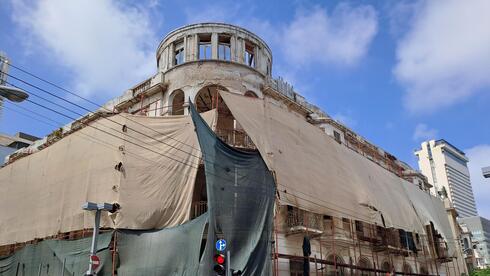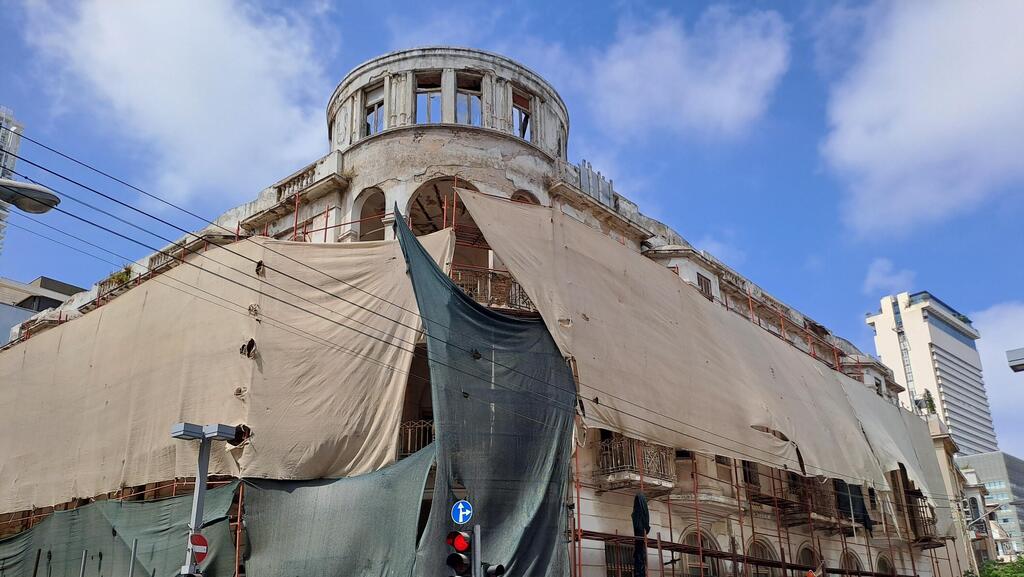
Historic Tel Aviv property valued in the hundreds of millions hits the market for the first time in over a century
Seven residential buildings, worth hundreds of millions of shekels in downtown Tel Aviv, are being offered for sale as part of receivership. Real estate appraiser Asaf Gastfreund commented, "Whoever acquires these properties stands to unlock their vast potential."
A seemingly innocuous advertisement appeared on Wednesday in the back pages of daily newspapers in Israel, announcing a significant sale of the century-old real estate holdings of Aharon Michakashvili. The ad, attributed to the Haifa law firm "Mozor, Hakim, Beit Halachmi," offers for sale seven residential buildings located on Rothschild Boulevard and various streets including Nachalat Binyamin, Herzl, Eilat, and Montefiore, as well as an apartment on Chen Street and two plots on Ben Yehuda Street in Tel Aviv and Herzliya Pituach. The combined land value is estimated to be in the hundreds of millions of shekels.
The value of the buildings now on offer is difficult to overstate. For instance, the Ismailov Hotel, situated at the corner of Montefiore and Yavneh streets, was designed by Tel Aviv's inaugural city engineer, Yehuda Magidovich. After Magidovich's death in 1935 at the age of 53, the hotel passed into the hands of the Michakashvili family, originally from Georgia, shortly thereafter. According to Ismailov’s granddaughter, her family lost the hotel to the Michakashvili family in a card game.
The documentation file of the Michakashvili house, at 14 Eilat Street in Jaffa, which was used after the establishment of the state as the District Court of Tel Aviv, sheds light on the growth of Michakashvili’s real estate enterprise. Mordechai and Sarah Michakashvili immigrated to Israel in 1907 and established a business that spanned properties in Jerusalem, Tiberias, and Tel Aviv. Upon Mordechai’s retirement, his sons Aharon and Moshe assumed control. The files indicate that, unusually, the family successfully preserved their assets over the years, but that situation appears poised to change imminently.
The Michakashvili family remained largely anonymous until the 1990s, when they made headlines due to protracted legal disputes over their patriarch Aharon Michakashvili's estate following his death in 1994. Aharon's sisters filed a petition to execute a will that left nearly his entire estate to them, while granting only nominal sums to his children. In response, Aharon’s son and daughter, David and Liora, contested the will. In 1997, the district court sided with the children, overturning the will on grounds that it was influenced unfairly by Aharon's sisters. The verdict painted a picture of a family relationship where Aharon had a close bond with his son and even made efforts to maintain contact with his daughters, but was unduly influenced by his sisters, who took advantage of their authority.
In 2008, an attempt was made to submit a forged will to the inheritance registrar in a bid to claim a portion of the family assets belonging to sister Rachel. The 2013 court ruling exposed the submitter's false claim of having known Rachel Michakashvili in the early 2000s, asserting that she had designated him as her heir after he had supported her, with Rachel not having any children. The court invalidated the will, valued at over $50 million, and confirmed that the signature on it was indeed forged.
Court-appointed real estate appraiser Asaf Gastfreund, tasked with evaluating the properties for the receivership, describes them as a treasure trove: "I have surveyed the properties and believe these are truly unique assets, situated in prime locations. I estimate their value in the hundreds of millions. This liquidation case is exceptionally rare. Whoever acquires these properties stands to unlock their vast potential."















